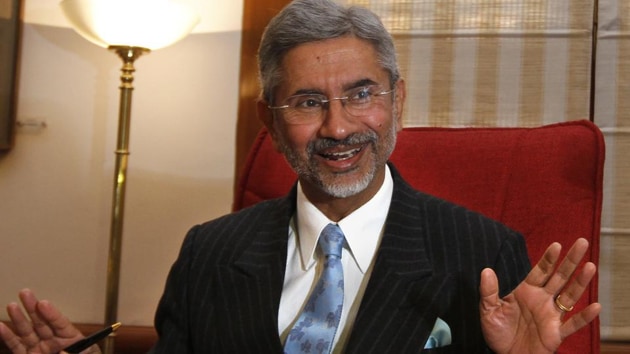Balancing ties key test for S Jaishankar
Modi’s decision to name former foreign secretary S Jaishankar as the new foreign minister surprised many as it had been widely expected that Suhsma Swaraj would get a second term.
With an experienced hand at the helm, who has the complete confidence of Prime Minister Narendra Modi, the external affairs ministry is navigating an increasingly polarised world and tackling complex challenges while attempting to retain autonomy in decision-making.

Modi’s decision to name former foreign secretary S Jaishankar as the new foreign minister surprised many as it had been widely expected that Suhsma Swaraj would get a second term. By now, it is clear that Jaishankar will play a larger role than his predecessor as he accompanied Modi to the G20 Summit and played a key role in meetings and deliberations.
There are unlikely to be any major changes in the contours of the National Democratic Alliance (NDA) government’s approach to foreign policy in its second term, with the Prime Minister’s Office playing a major role in shaping the doctrine and objectives, people familiar with developments said. Jaishankar, the people said, will play a key role in the execution of the policy and in giving a face to public diplomacy.
“Jaishankar’s appointment was a signal to Washington as he is widely perceived to be someone who knows the US,” said one of the people cited above.
This was also reflected in the praise lavished on Modi’s choice of Jaishankar by some American experts, such as former US envoy to India, Richard Verma, who described the new external affairs minister as a “tough negotiator but yet exceptionally fair” and a person who knows how to make deals.
But the external affairs ministry has had its hands full under the new dispensation, coping with challenges in the neighbourhood and beyond, while it seeks to achieve a balance in its ties with major powers such as the US, China and Russia.
Summarising India’s foreign policy challenges at the beginning of the year, an official who didn’t want to be named, had said the country would have to face the task of navigating in international forums and preserving its own space for decision-making while both the US and Russia expected it to come to their side.
India has stuck to its decision to acquire the S-400 missile defence systems under a $5.2 billion deal with Russia despite US threats of action under the Countering America’s Adversaries Through Sanctions Act. India has also had to cope with China’s efforts to woo the country to its side in its trade war with the US, especially at a time when New Delhi is keen to ensure that the second informal summit between Modi and President Xi Jinping in October is successful in charting a new course to keep bilateral relations on an even keel.
The end of the US waiver for sanctions on Iranian oil imports has impacted India’s energy security and the US-Iran tensions have the potential to affect both oil supplies and the security of more than eight million Indians living and working in the Middle East.
According to leading strategic affairs analyst Brahma Chellaney, it is trade that will pose a key challenge for India in its ties with the US.
“Soon after taking over, this government faced the challenge of the US ending export benefits under the Generalised System of Preferences (GSP) programme and President Trump has been making quite a bit of trouble with his transactional approach while the strategic partnership has been put in the back seat,” he said.
“The US under Trump is openly acting as an imperial power, making unilateral demands even on allies and friends. China too has less room to manoeuvre because of the US pressure. Our relations with Russia continue to be warm but the geo-strategic content is clearly not the same as it was even in the 1990s,” Chellaney added.
And despite the NDA government’s efforts to get around the stalled Saarc (South Asian Association for Regional Cooperation) process by focussing on other regional groupings such as Bimstec (Bay of Bengal Initiative for Multi-Sectoral Technical and Economic Cooperation), whose leaders were invited to Modi’s swearing-in, the government is yet to decide on the key issue of whether and when to engage with Pakistan.
For now, the government has focussed on piling on pressure on Pakistan to end terrorism emanating from its soil, including the recent designation of Jaish-e-Mohammed chief Masood Azhar as a global terrorist by the UN’s 1267 Sanctions Committee and the action taken by the Financial Action Task Force (FATF) for Islamabad’s failure to curb terror financing by groups such as JeM and Lashkar-e-Taiba.
Get Current Updates on India News, Lok Sabha Election 2024 live, Infosys Q4 Results Live, Elections 2024, Election 2024 Date along with Latest News and Top Headlines from India and around the world.




